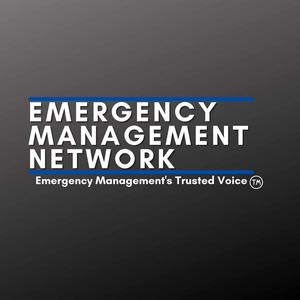The Emergency Management Network PodcastEpisode Title: Authority, Responsibility, and the Emergency Manager’s DilemmaHosts: Todd DeVoe and Dan Scott
In this episode of The Emergency Management Network Podcast, Todd DeVoe and Dan Scott take a deep dive into one of the profession's defining tensions: the gap between authority and responsibility. Emergency managers are expected to coordinate complex systems, anticipate cascading failures, and help guide communities through crisis, yet they often operate without direct command authority over the agencies responsible for action. That reality creates a professional dilemma that is rarely discussed openly but felt daily across the field.
Todd and Dan explore how responsibility often finds the emergency manager before authority does. When disaster strikes, communities look for coordination, clarity, and leadership, not organizational charts. The conversation examines how emergency managers become accountable for outcomes they do not fully control, and how influence, credibility, and trust often matter more than formal power in driving results.
The discussion moves beyond operations into philosophy and ethics. Drawing on ideas from Aristotle, Plato, and Stoic thought, the episode reflects on what it means to carry responsibility simply because you understand risk and consequence. The more an emergency manager sees the interdependencies within a community, the harder it becomes to step back and treat preparedness as someone else’s job. Responsibility becomes a moral obligation, not just a professional duty.
Todd and Dan also talk candidly about the personal weight that comes with this role. The profession often lives in the space between expectation and authority, and that space can produce both purpose and strain. They explore how burnout emerges when responsibility expands without structural authority, and how relationships, communication, and long-term trust building become the real levers of leadership.
The episode reframes authority in emergency management as relational rather than positional. It is built over time through competence, consistency, and the ability to align people and systems before the crisis begins. The conversation highlights how emergency managers shape decisions, influence direction, and steward coordination, even when they are not the ones issuing orders.
Throughout the discussion, Todd and Dan return to practice. Governance, culture, and institutional design all shape how authority is shared and how responsibility is carried. The profession continues to evolve, but the dilemma remains a constant. Emergency managers operate at the intersection of policy, operations, and ethics, balancing public expectations with the realities of fragmented authority.
This episode challenges listeners to reflect on their own role in that tension. Authority may not always sit in the emergency manager’s office, but responsibility often does. The question becomes how to lead effectively within that reality, how to build influence where command is limited, and how to continue stewarding preparedness in systems that are never fully aligned.
Todd and Dan close with a reminder that the work of emergency management begins long before the incident and continues long after the headlines fade. The profession is not defined by command, but by stewardship, trust, and the quiet work of aligning people and systems toward resilience.
This is a public episode. If you'd like to discuss this with other subscribers or get access to bonus episodes, visit emnetwork.substack.com/subscribe


